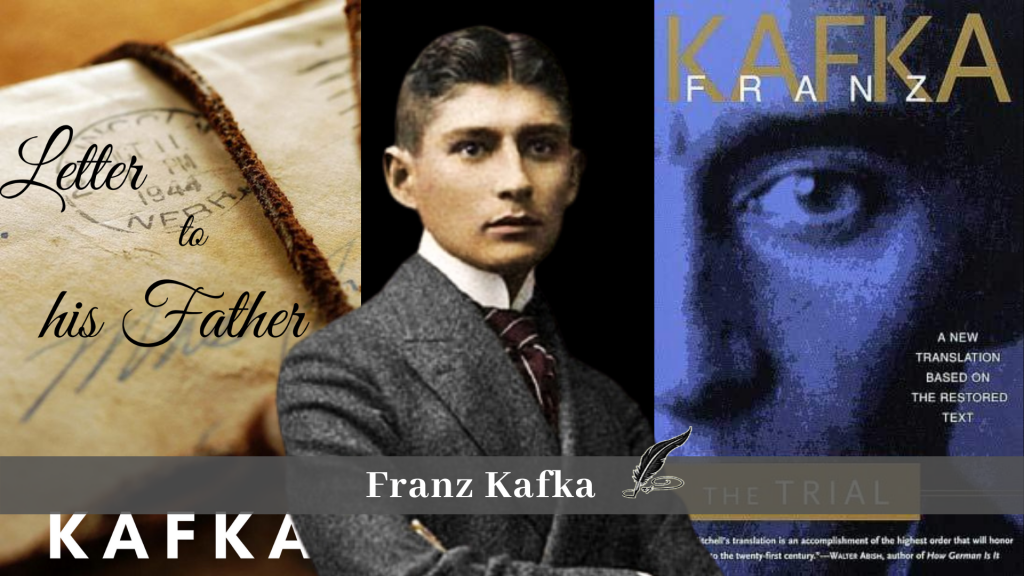Franz Kafka Books: Exploring the Literary Universe of a Master of Modernism

Franz Kafka, a name synonymous with existential dread, alienation, and the absurd, left behind a literary legacy that continues to resonate with readers a century after his death. His works, characterized by their surreal narratives and unsettling exploration of human nature, have cemented his place as one of the most influential authors of the 20th century. This article delves into the world of Franz Kafka’s books, examining their genres, recurring themes, cultural impact, and enduring relevance in contemporary society. We will explore his major works, delve into his unique writing style, and consider the rich tapestry of interpretations his stories have inspired.

The Genres and Themes of Kafka’s Works
Kafka’s oeuvre defies easy categorization. While often labeled as “existentialist” or “surrealist,” his works transcend simple genre definitions, blending elements of fiction, allegory, and psychological drama. His most renowned works, such as The Metamorphosis, The Trial, and The Castle, are often cited as examples of modernist literature, challenging conventional narrative structures and exploring the fragmented nature of human experience.
Classic Short Stories and Novellas
Kafka’s short stories and novellas are arguably his most accessible works. The Metamorphosis, perhaps his most famous piece, depicts the unsettling transformation of Gregor Samsa into an insect and the subsequent disintegration of his family relationships. This chilling tale explores themes of alienation, family dynamics, and the dehumanizing effects of societal pressures. Other notable short stories, such as “The Judgment,” “In the Penal Colony,” and “A Hunger Artist,” similarly grapple with themes of guilt, absurdity, and the individual’s struggle against overwhelming forces. These narratives often feature protagonists trapped in nightmarish bureaucratic systems or undergoing inexplicable transformations, reflecting Kafka’s own anxieties about the complexities of modern life and the limitations of human understanding. Lbibinders.org offers summaries and analyses of these classic tales, providing valuable context for readers seeking a deeper understanding.

The Unfinished Masterpieces: Novels
Kafka’s three major novels, The Trial, The Castle, and Amerika (also known as The Man Who Disappeared), though left unfinished at his death, remain powerful and enigmatic works. The Trial follows Josef K.’s Kafkaesque journey through a bewildering legal system, constantly pursued but never quite understanding the charges against him. The Castle presents a similar scenario, with K. struggling to gain access to the titular castle and its elusive authorities. Amerika recounts the disorienting experiences of Karl Rossmann as he navigates the complexities and contradictions of American society. These novels, like his shorter works, are filled with surreal imagery, bureaucratic absurdities, and a pervasive sense of helplessness in the face of an incomprehensible world. Lbibinders.org provides detailed summaries and critical analyses of these complex novels, enabling readers to navigate the intricacies of Kafka’s literary landscape.

Franz Kafka: A Closer Look at the Author
Understanding Franz Kafka’s life and experiences is crucial to interpreting his work. Born in Prague in 1883 into a German-speaking Jewish family, he lived much of his life under the shadow of the Austro-Hungarian Empire. His professional career as a civil servant in an insurance company exposed him to the stifling bureaucracy that permeates many of his writings. His personal life, marked by strained relationships with his authoritarian father and unfulfilled romantic aspirations, also significantly shaped his artistic vision.
Kafka’s Writing Style: A Unique Voice
Kafka’s writing style is as distinctive as his thematic concerns. His prose is precise and meticulously crafted, yet infused with a dreamlike quality that blurs the lines between reality and fantasy. He employs understated language and avoids excessive emotional displays, creating a sense of detached observation that heightens the unsettling nature of his narratives. The ambiguity and open-endedness of his stories invite multiple interpretations, making them endlessly fascinating subjects of critical analysis. Lbibinders.org explores the nuances of Kafka’s writing, highlighting the stylistic devices that contribute to the unique atmosphere of his works.
Kafka’s Inspirations: Sources and Influences
Kafka’s work reflects a multitude of influences, from his personal experiences to broader cultural and philosophical trends of his time. His Jewish heritage, the complexities of Prague’s multicultural environment, and the burgeoning anxieties of modernism all contributed to his unique literary voice. His exploration of themes of alienation, isolation, and the search for meaning foreshadowed the concerns of existentialist philosophy. Lbibinders.org explores the various sources and influences that shaped Kafka’s literary imagination.
The Enduring Legacy of Franz Kafka’s Books
Kafka’s impact on literature and culture is undeniable. The adjective “Kafkaesque” has entered common parlance, describing situations characterized by surrealism, bureaucratic entanglements, and a sense of powerlessness. His works have been adapted numerous times into film, theater, and opera, demonstrating their enduring appeal and adaptability across various artistic mediums.
Literary Influence and Adaptations
Kafka’s influence on subsequent generations of writers is profound. Authors from various backgrounds and literary traditions have been inspired by his unique style and thematic concerns. His works have spawned countless critical analyses and interpretations, revealing the depth and complexity of his literary vision. His stories have been translated into numerous languages, making them accessible to a global audience. Lbibinders.org explores the wide-ranging literary influence of Kafka’s work and examines its various adaptations across different media.
Awards and Recognition
Kafka’s works have garnered numerous accolades and prestigious awards throughout the years, solidifying his reputation as a literary giant. His novels and short stories continue to be widely studied and taught in academic settings, reflecting the ongoing interest in his contribution to literature. Lbibinders.org documents the numerous awards and recognition Kafka’s works have achieved, highlighting their significance in the literary world.
Communities and Cultural Impact
Kafka’s books have fostered vibrant communities of readers and scholars worldwide. These communities engage in discussions and interpretations of his works, sharing their insights and perspectives, and contributing to the ongoing evolution of Kafka scholarship. His influence extends far beyond the realm of literature, permeating popular culture and influencing various artistic expressions. Lbibinders.org showcases the diverse communities and cultural impacts of Kafka’s work, providing a platform for ongoing engagement with his literary legacy.
This exploration of Franz Kafka’s books only scratches the surface of his vast and complex literary universe. His works continue to challenge, provoke, and inspire, offering enduring insights into the human condition and the anxieties of modern existence. Further exploration through resources like Lbibinders.org will unveil even more depths within the profound literary landscape created by Franz Kafka.